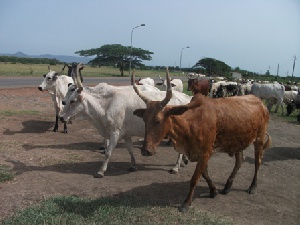The Deputy Minister of Food and Agriculture in charge of Livestock, Dr. Hannah Bissiw, has charged poultry farmers in the country to operate well-managed hatcheries in order to increase their production capacity to meet local demand.
Speaking at a validation workshop to seek stakeholder inputs into the draft animal production and health legislation in Accra, she said properly managed hatcheries will curb the increased mortality rate of day old chicks, which is a major challenge facing poultry farmers in the country, leading to over-dependence on poultry imports.
She said poultry farmers are currently challenged with the issue of high mortality rate of locally-produced day-old chicks, a situation that accounts for the over-reliance on the importation of day-old chicks, and that the draft legislation will help to avert the trend.
“The operating of poorly managed poultry hatcheries must stop now if, as a country, we want to increase poultry production to meet local demand, and also for export to the Sahel countries, where Ghana has the comparative advantage.
“The continued high mortality among locally produced day-old chicks remain a common complaint among poultry farmers in the industry and this is because of the improper manner in which some hatcheries are operated in the country.
“Legislation governing the proper management of hatcheries will meet the demand of quality day-old chicks, which has been a major constraint in the poultry industry, resulting in a situation where poultry farmers prefer to import day-old chicks, instead of buying locally produced day-old chicks.
“We should take advantage of this draft legislation to improve our hatcheries that will produce quality day -old chicks as well as feed mills to produce quality feed for the poultry industry,” she said.
Currently, the country consumes an average of 225,000 metric tonnes of meat annually and domestic production constitutes only 30 per cent while poultry imports alone constitute 80 per cent of the total meat imports.
Government, acting through the MoFA in collaboration with the Ghana National Association of Poultry Farmers (GNAPF), has rolled out the Ghana Broiler Revitalisation Project to curb the increase dependence on poultry imports and also boost local capacity in the production, processing and marketing of broiler chickens.
The project targets to produce 30,000 metric tonnes of broiler meat this year, with an expected increase to 60,000 metric tonnes by the year 2016.
In support of the project, Dr. Bissiw tasked stakeholders in the livestock sector to ensure that the final bill on animal production and health will have portions that will regulate the importation of live poultry and poultry products into the country as well as standard setting for poultry processing plants to enforce strict adherence.
“As government seriously embarks on the Ghana Broiler Revitalization Project, it is my hope that the draft legislation for both animal health and production will cover areas such as hygienic slaughter and processing of poultry, feed mills, hatcheries, and bio-security practices on poultry farms in accordance with international standards.
“I would like to see legal portions on importation of live poultry and poultry products into the country. There must be standards setting in this legislation for poultry processing plants, which they must adhere to; this will bring sanity into the production of livestock in the country.”
Business News of Monday, 13 October 2014
Source: B&FT
Legislation to sanitise livestock production
Entertainment












